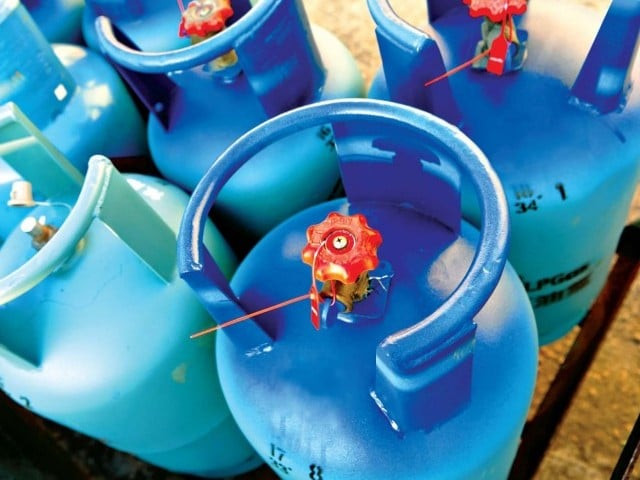Demands of LPG producers go unheeded
Sub-committee on LPG policy rejects proposals which may end price disparity

A sub-committee constituted to make recommendations for a new liquefied petroleum gas (LPG) policy has turned down major demands of state-run LPG producers that called for imposing regulatory duty on LPG imports and maintaining advance income tax to end price distortion.
Oil and Gas Development Company (OGDC), Pak Arab Refinery Limited (Parco) and Pakistan Petroleum Limited (PPL) are the state-run companies that are producing LPG.
They said that the government should maintain the prevailing advance income tax on LPG imports as this is an advance tax and is adjustable against final tax liability.
In final draft of the new LPG policy, the sub-committee, formed by the Cabinet Committee on Energy (CCOE), rejected the two proposals and called for removing the advance tax, which would increase price disparity between local and imported LPG.
The sub-body also did not propose imposition of regulatory duty on LPG imports.
In a letter sent to the Petroleum Division secretary and Planning Commission deputy chairman, the state-run companies demanded the inclusion of several proposals in the new LPG policy.
The Planning Commission deputy chairman heads the sub-body on LPG policy. However, they expressed serious reservations about the proposed LPG policy, which was in favour of importers.
They have written several letters to the government, highlighting some concerns, and asked it to address them while finalising the “Report on Sustainable LPG Supply Chain Policy” in order to ensure sustainability, removal of disparity in the LPG supply chain and a level playing field for the local producers and importers.
They said that regulatory duty should be imposed on imported LPG through sea and land, which was equivalent to the petroleum levy on domestic LPG production, to ensure consistent pricing.
They suggested that transparent pre-qualification criteria be devised without discrimination between public and private sector producers for shortlisting the eligible gas marketing companies.
They further said that any producer may sell its entire or partial LPG production directly or through its subsidiary and offer the remaining quantity to other Oil and Gas Regulatory Authority (Ogra)-licensed LPG marketing companies, subject to technical pre-qualification.
They stated that the domestic producer price should be based on true import parity price as an incentive/ compensation to encourage further investment in storages and enhancing production.
They pointed out that domestic producers, such as refineries, had made huge capital investments, undertaken exposure to crude oil imports and suffered transportation/ processing losses prior to production of LPG and other value-added products.
They said that licensing criteria should be revised to consider minimum capital investment of Rs500 million, minimum storage for 20-day stock cover and minimum cylinder population proportionate with the sales volume.
Published in The Express Tribune, March 4th, 2021.
Like Business on Facebook, follow @TribuneBiz on Twitter to stay informed and join in the conversation.


















COMMENTS
Comments are moderated and generally will be posted if they are on-topic and not abusive.
For more information, please see our Comments FAQ